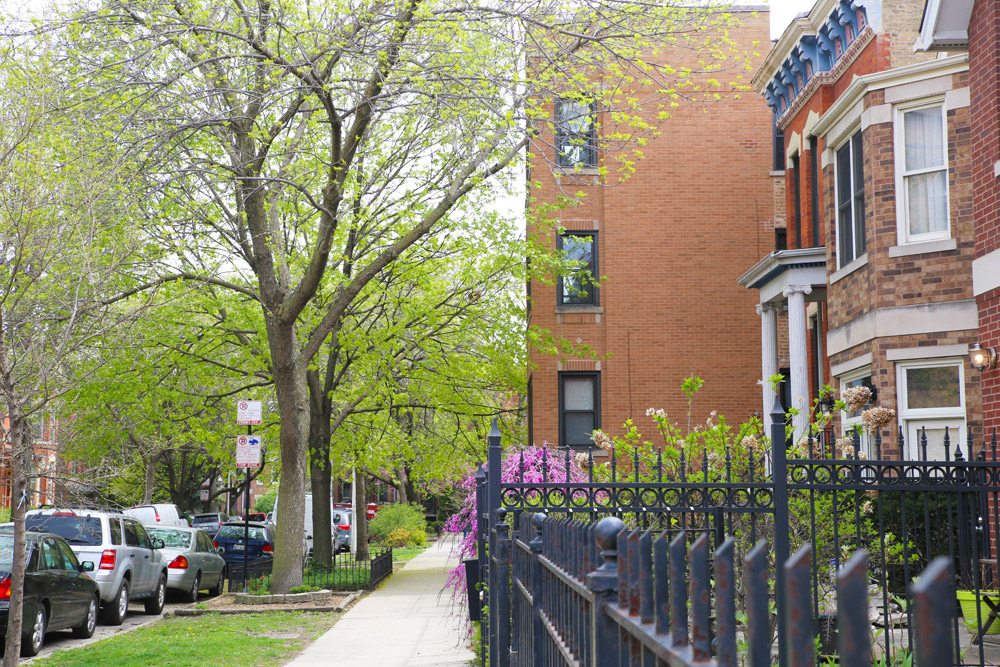During the hunt for the perfect home, you may find yourself trying to decide between purchasing a condominium (condo) or a cooperative (co-op). While the two types of residences share similarities, it is essential that any potential buyer can thoroughly distinguish the different properties.
We are here to help break down the differences between condos and co-ops so that moving forward you can feel confident making the perfect purchase.
What’s The Difference Between a Co-op and a Condo?
Co-ops and condos closely resemble each other in the fact that they offer separate units in a single building. These buildings also provide residents with shared common areas, such as a lobby or outdoor recreational space.
The main difference between the two property types comes down to the ownership terms of the units.
When buyers purchase a condo, they are gaining ownership of the individual unit and paying fees to the HOA, which manages the exterior and shared spaces within and around the building.
Co-ops, on the other hand, are homes you do not actually own. Instead, companies own them. This means that rather than acquiring the title to the physical unit, the buyer purchases shares of the company. A shareholder of the company is then entitled to a proprietary lease, giving him or her the right to occupy a specific unit.
Due to the varying nature of co-op and condo ownership, there are other noticeable differences between the two properties, including the application process, building types, pricing, and taxes.
How Does Cooperative Housing Work?
Co-ops, specifically ones situated in Chicago, often feature old historic buildings, boasting stunning architecture, unbeatable character and unique floor plans in each unit.
In a cooperative building, residents may get a few units on each floor or even multiple stories. Generally, the larger the apartment, the more shares the buyer must purchase.
When it comes to obtaining cooperative housing, buyers should know that it is a more restrictive process than condo purchases for a few reasons.
While cooperative housing allows financing, there are many more limits in place compared to condo purchases. Also, the co-op board has a major say as to who moves into the building. However, no person can be turned down because of age, race, sexual orientation, or religion (or other discrimination categories defined by both state and federal statutes).
Buyers must go through an approval process to make sure they can afford their share of the building. The cooperative housing process frequently involves an application, a detailed balance sheet, and several personal and professional letters of reference. Some co-ops also request to see tax returns. Once the co-op board has received and reviewed the buyer’s application, an interview is scheduled, and then the buyer may be officially approved.
Once buyers are approved, they are discouraged or prohibited from leasing or flipping the unit for investment. Cooperatives promote long-term residency, as opposed to many condominium buildings.
Co-op vs Condo Advantages and Disadvantages
Since co-ops and condos are uniquely different, they each offer their own advantages and disadvantages. It is important for house hunters to consider the pros and cons of each to determine which property is most suited for them.
Co-ops– While one of the advantages of living in a co-op includes getting a better deal per square feet than condo units, higher monthly fees pose as a disadvantage.
The buying and selling process is a bit more tricky when it comes to cooperatives. Not only is the application process more extensive, but loans are more challenging. It is always wise to involve a broker who can provide critical knowledge and guidance during these stages.
This extensive buying process partially explains why the resale time for co-ops is much longer than condos. In fact, million dollar cooperatives have been known to sit on the market for years.
While co-ops are more restrictive than condos, these buildings are known for being managed extremely well.
Condos- For any home buyer seeking an investment, condominiums are the way to go. Not only is the resale process much quicker and easier, but leasing out condos is generally permitted, unlike co-ops.
While the ease of leasing and moving out of condos may be an advantage for some, this also may pose as a disadvantage for those looking for a more permanent place with a tight-knit community. Condominiums often have a higher turnover rate, with new residents frequently coming and going.
Who’s Responsible? Condo vs. Co-op Maintenance Fees
Many buyers are surprised to learn that monthly co-op fees are higher than condo fees. The reason for this is that co-ops bundle multiple expenses into one bill, including gas, water, and property tax.
Condominium maintenance fees, on the other hand, strictly reflect the expense of maintaining the building.
Maintenance fees can vary dramatically in price, for both condos and co-ops.
While HOA fees are standard across the board for all condo owners in the same building, the fees that residents pay for a co-op are based on their percent of shares in the company. For example, if a co-op shareholder owns 10 percent of the building, they will pay 10 percent of the maintenance bills.
While some buyers appreciate this expense method, people who travel frequently may not find it to be cost effective.
Condo vs. Co-op Taxes — What You Can Expect
If you are a condo owner and own the physical unit, you are expected to pay separate and individual property tax.
Co-ops, on the other hand, do not require separate tax payments. Instead, monthly maintenance fees include property taxes. This is because the government taxes the entire building as one entity and then that cost is distributed based on the percentage interest of the co-op owners through maintenance fees.
Condo owners can often expect higher property taxes. Because condominiums are newer, larger, and come with more amenities, they tend to have a higher market value, which results in increased taxes.
The cost of property taxes for both condos and co-ops are dependent on the mill levy and the assessed value of your property. The mill levy is simply the tax rate imposed on your property value and varies depending on the tax jurisdiction. The assessed value of your property is an annual estimation of the reasonable market value of your condo or co-op based upon local real estate conditions. These conditions may include factors such as the selling price of similar properties in the area, replacement costs for the property, and maintenance costs for the property owner.
To determine the property tax for your home, the assessed value is multiplied by the mill levy.
Where Can You Find Co-op Chicago Housing?
If you find yourself drawn to the idea of cooperative housing, but not sure where to look, we have got you covered.
In Chicago, you will find co-op housing in the best parts of the city with the greatest views. Neighborhoods like Lakeview, Lincoln Park, Gold Coast, and Hyde Park boast incredible pre-War and Art Deco cooperative buildings.
Cooperative Communities of Chicago offers a fantastic resource for anyone looking to learn more or find a co-op property in the city for themselves. Not only does this co-op hub offer insight and advice to prospective buyers, but it also provides a directory of currently available co-op listings in the Chicago area.
Recently, Logan Square has seen various co-ops pop up on the market. The Ema Goldman Cooperative offers beautiful multi-family living quarters in a unique 1920’s era flat. Check out the available unit with three bedrooms, two baths.
Little Italy also offers a fair selection of co-op housing, including the HUB Housing Cooperative which features a six-unit apartment building with two units currently available. This co-op focuses on sustainable living offering residents a large storage space for bicycles, compost recycling, and community sustainable agriculture.
Whether you are looking for a home rich in history and character or a breezy buying and selling process, condos and cooperatives both offer home buyers unique benefits.
Contact an experienced real estate expert today to help find the property that best fits your needs today!











